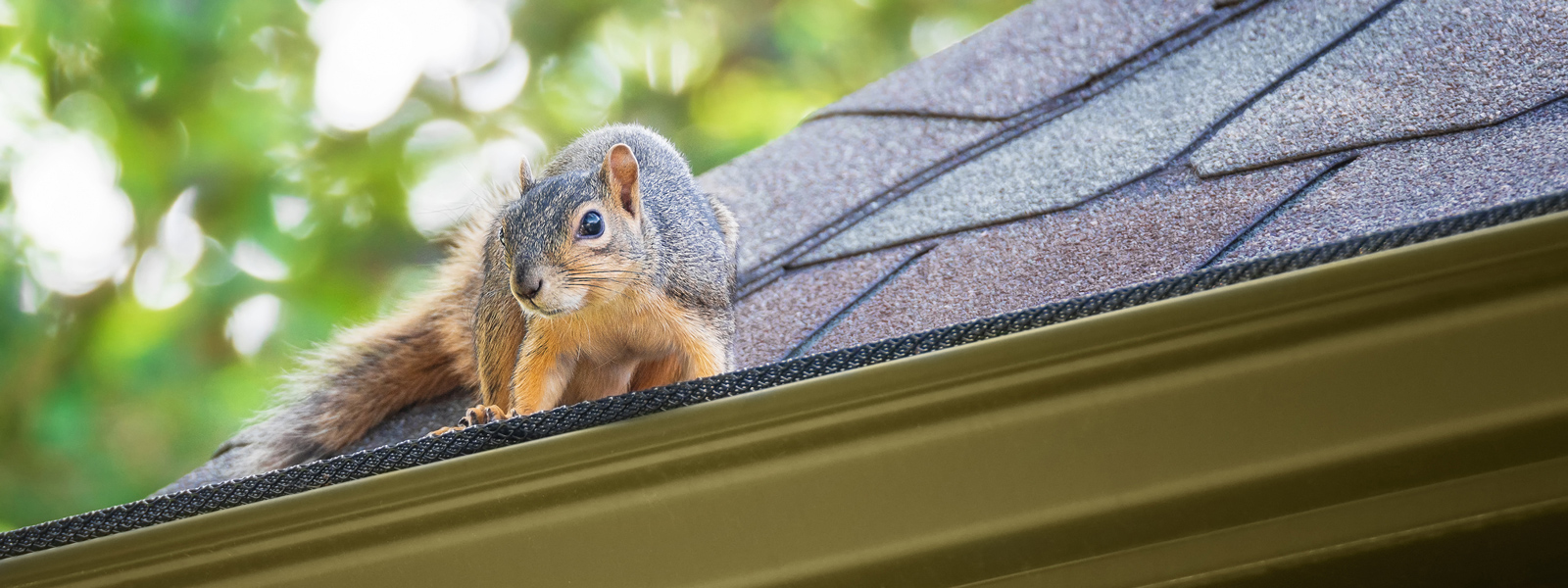Humane Rodent and Dead Animal Removal: Local Experts Near You.

Humane Rodent and Dead Animal Removal: Local Experts Near You.
Quickly and discreetly remove rodents and dead animals from your home. Find a trusted professional near you.
If you are having a problem with a wild animal, please select your city/town in New-jersey from the map or list above. This New-jersey animal control directory lists the phone numbers of professional wildlife removal experts throughout New-jersey. These nuisance wildlife control operators deal with conflicts between people and wildlife such as squirrels living in an attic, or raccoons digging through the trash can. Call the licensed and insured professional listed here, and get the problem taken care of once and for all.
There are many New-jersey pest control companies, but most of them treat for insect problems, and have little experience dealing with wild animals. Our specially trained technicians have the specific knowledge and equipment necessary for New-jersey wildlife management. We are not extermination companies, we are professional New-jersey trappers of wildlife. We are humane, and do a complete job - everything from animal damage repairs to biohazard waste cleanup.
Our New-jersey animal control experts can handle many wildlife issues. Examples include New-jersey bat control and removal. It takes an experienced pro to safely and legally remove a colony of bats. The same goes for bird control, such as roosting pigeons. We know all the species of New-jersey snakes, and can safely remove them. We most commonly deal with animals in the home, such as rats or mice in the attic, or raccoons in the chimney. Select your area on the map above, and find a professional in your home town.
There are many New-jersey pest control companies, but most of them treat for insect problems, and have little experience dealing with wild animals. Our specially trained technicians have the specific knowledge and equipment necessary for New-jersey wildlife management. We are not extermination companies, we are professional New-jersey trappers of wildlife. We are humane, and do a complete job - everything from animal damage repairs to biohazard waste cleanup.
Our New-jersey animal control experts can handle many wildlife issues. Examples include New-jersey bat control and removal. It takes an experienced pro to safely and legally remove a colony of bats. The same goes for bird control, such as roosting pigeons. We know all the species of New-jersey snakes, and can safely remove them. We most commonly deal with animals in the home, such as rats or mice in the attic, or raccoons in the chimney. Select your area on the map above, and find a professional in your home town.
New Jersey info: The state has bear and deer, and there are lots of them! Also, lots of ticks and Lyme Disease! Common nuisance animals include squirrels, skunks, opossums, and bats.
If you need assistance with a domestic animal, such as a dog or a cat, you need to call your local New Jersey county animal services or SPCA for assistance. They can help you out with issues such as stray dogs, stray cats, dangerous animal complaints, pet adoption, bite reports, deceased pets, lost pets, and other issues. We have those numbers listed here for your convenience. If your city is not on our map, consult your local yellow pages or search for 'Animal Control' or 'SPCA' in your town.
If you need assistance with a domestic animal, such as a dog or a cat, you need to call your local New Jersey county animal services or SPCA for assistance. They can help you out with issues such as stray dogs, stray cats, dangerous animal complaints, pet adoption, bite reports, deceased pets, lost pets, and other issues. We have those numbers listed here for your convenience. If your city is not on our map, consult your local yellow pages or search for 'Animal Control' or 'SPCA' in your town.
Trenton, NJ
23°F to 83°F
23°F to 83°F
- European honeybee
- Brook trout
- Eastern goldfinch
- Horse
New Jersey has four very different habitat regions, making it one of the most bio-diverse states in the United States. The coastal area is loaded with beaches and almost has a completely different human culture than the rest of the state. Urban New Jersey is right across from New York City, and this is one of the most densely populated areas of the state. In contrast, the southern part of New Jersey is dominated by pine trees and thick forest, and it is sparsely populated with people compared to the rest of the state. Up in the northwest, hardwood forests and mountains start the transition into the type of vegetation seen in the rest of the Northeast.
The wide variety of habitats means a wide variety of animals. New Jersey has over 1000 different animal species. These animals find homes in pine forests, hardwood forests, freshwater and saltwater marshes, and beach ecosystems.
Of the 90 different mammal species in this state, the black bear is the largest. These predators are most commonly found in the northwest portion of the state but have been spotted in every county. The bears are particularly problematic because of how populated the northwest part of the state is with humans. As a rule, black bears mind their own business; however, in a state where people and garbage are plentiful, bears can become frequent visitors to local dumps or garbage cans. The second largest predator in this state is the coyote. These canines are scarce, and spend their time in the wilder region of New Jersey. The large predators in this state are not considered nuisance animals like the smaller mammals that like to run amok.
Hikers out looking for animals will find more white-tailed deer than in any other state in the country. In addition to the deer, squirrels, skunks, foxes, raccoons, beaver, and groundhogs are all common sightings when out in the woods. Mammals don't hold all the glory for wildlife spotters. New Jersey has hundreds of bird species, including a growing population of bald eagles.
With so much water in the state, it's no wonder there are over 300 species of fish, reptiles, and amphibians in both freshwater and saltwater regions. New Jersey has swordfish, sturgeon, copperhead snakes, rattlesnakes, snapping turtles, and a colorful frog known as the Pine Barrens tree frog.
The wide variety of habitats means a wide variety of animals. New Jersey has over 1000 different animal species. These animals find homes in pine forests, hardwood forests, freshwater and saltwater marshes, and beach ecosystems.
Of the 90 different mammal species in this state, the black bear is the largest. These predators are most commonly found in the northwest portion of the state but have been spotted in every county. The bears are particularly problematic because of how populated the northwest part of the state is with humans. As a rule, black bears mind their own business; however, in a state where people and garbage are plentiful, bears can become frequent visitors to local dumps or garbage cans. The second largest predator in this state is the coyote. These canines are scarce, and spend their time in the wilder region of New Jersey. The large predators in this state are not considered nuisance animals like the smaller mammals that like to run amok.
Hikers out looking for animals will find more white-tailed deer than in any other state in the country. In addition to the deer, squirrels, skunks, foxes, raccoons, beaver, and groundhogs are all common sightings when out in the woods. Mammals don't hold all the glory for wildlife spotters. New Jersey has hundreds of bird species, including a growing population of bald eagles.
With so much water in the state, it's no wonder there are over 300 species of fish, reptiles, and amphibians in both freshwater and saltwater regions. New Jersey has swordfish, sturgeon, copperhead snakes, rattlesnakes, snapping turtles, and a colorful frog known as the Pine Barrens tree frog.
New-jersey Wildlife Invading Homes: A Growing Concern
New-jersey's landscape and climate make it an ideal habitat for a wide variety of wildlife. Unfortunately, this can also lead to problems for homeowners as animals seek shelter and food in residential areas.
As the human population continues to expand, encounters with wildlife are becoming increasingly common across the United States. One of the most frustrating and sometimes dangerous issues for homeowners is when animals find their way inside.
One of the most common culprits is the raccoon. These intelligent and adaptable creatures are skilled at finding ways into homes through small openings in roofs, chimneys, or vents. Once inside, they can cause damage to insulation, wiring, and furniture.
The specific types of wildlife that may invade homes vary depending on the region, but some common culprits in New-jersey include:
To prevent wildlife from entering your home, consider the following:
If you have a wildlife infestation, it's important to contact a professional wildlife removal service. They have the experience and equipment to safely and humanely remove animals from your home and prevent future infestations.
By taking these steps, you can help protect your home and property from wildlife damage while also ensuring the safety of both humans and animals
As the human population continues to expand, encounters with wildlife are becoming increasingly common across the United States. One of the most frustrating and sometimes dangerous issues for homeowners is when animals find their way inside.
One of the most common culprits is the raccoon. These intelligent and adaptable creatures are skilled at finding ways into homes through small openings in roofs, chimneys, or vents. Once inside, they can cause damage to insulation, wiring, and furniture.
The specific types of wildlife that may invade homes vary depending on the region, but some common culprits in New-jersey include:
- Opossums: These nocturnal marsupials can squeeze through surprisingly small holes.
- Squirrels: Both ground squirrels and tree squirrels can cause damage to homes and gardens.
- Bats: Bats may enter through small gaps in the roof or walls, potentially carrying diseases.
- Rodents: Rats and mice can squeeze through tiny openings and contaminate food.
To prevent wildlife from entering your home, consider the following:
- Seal up entry points: Inspect your home for any gaps or cracks in the exterior and seal them with caulk or metal flashing.
- Install screens: Use screens on windows and vents to deter flying animals.
- Remove attractants: Keep garbage, pet food, and bird feeders away from your home to avoid attracting wildlife.
If you have a wildlife infestation, it's important to contact a professional wildlife removal service. They have the experience and equipment to safely and humanely remove animals from your home and prevent future infestations.
By taking these steps, you can help protect your home and property from wildlife damage while also ensuring the safety of both humans and animals
